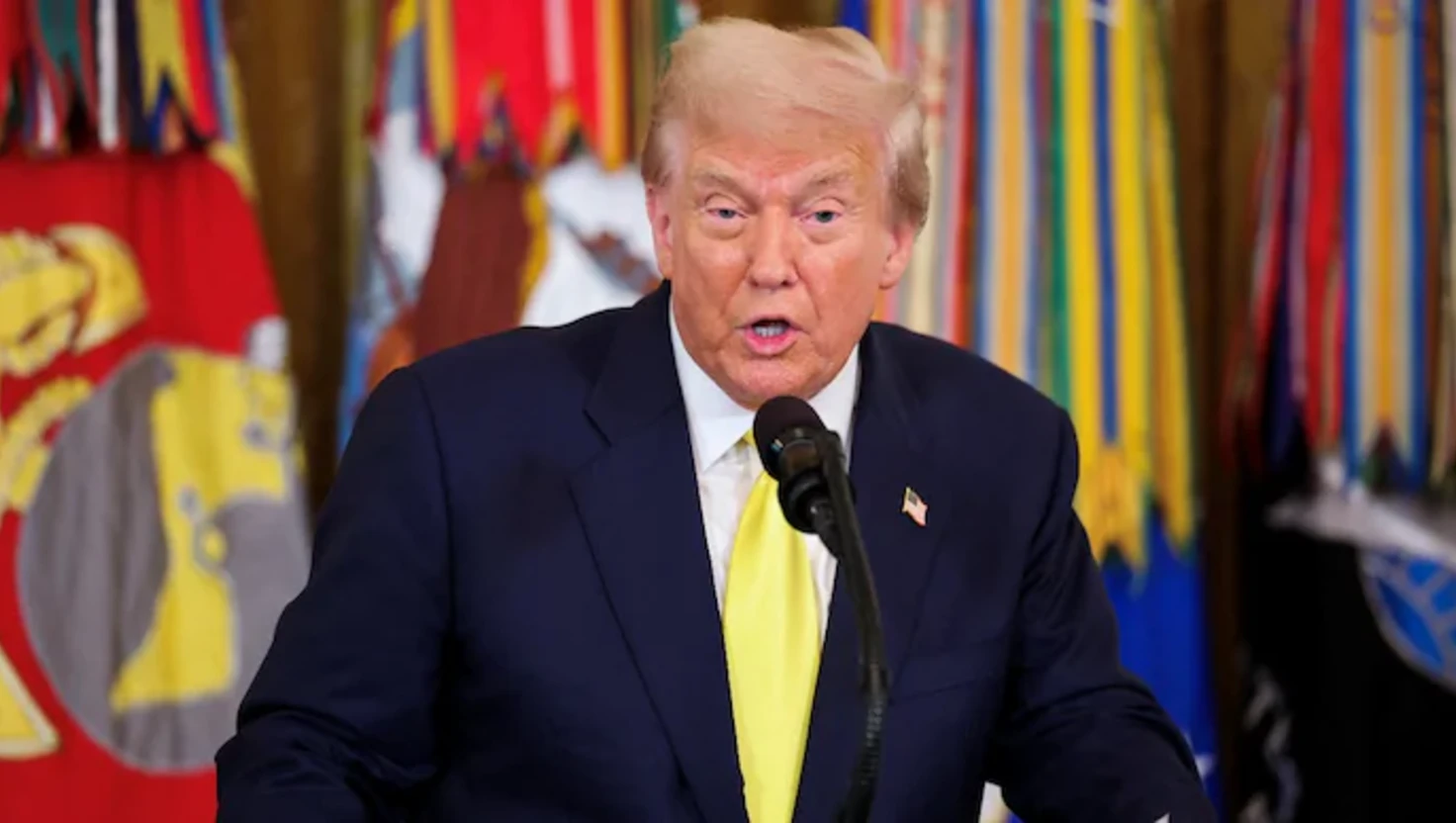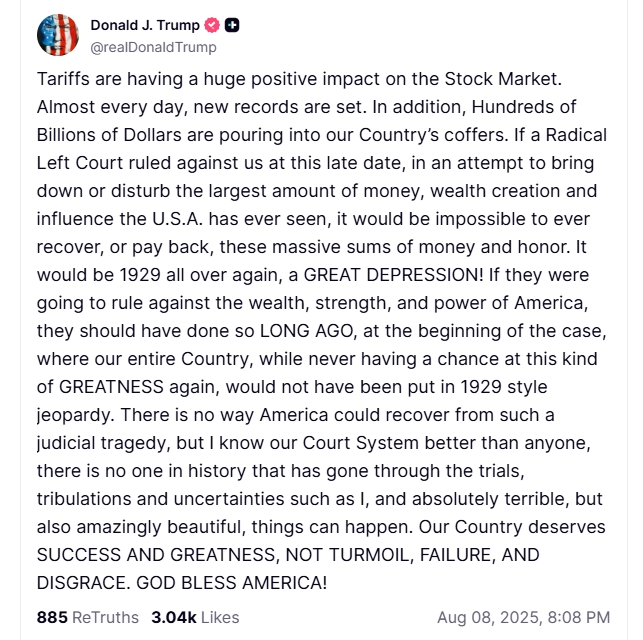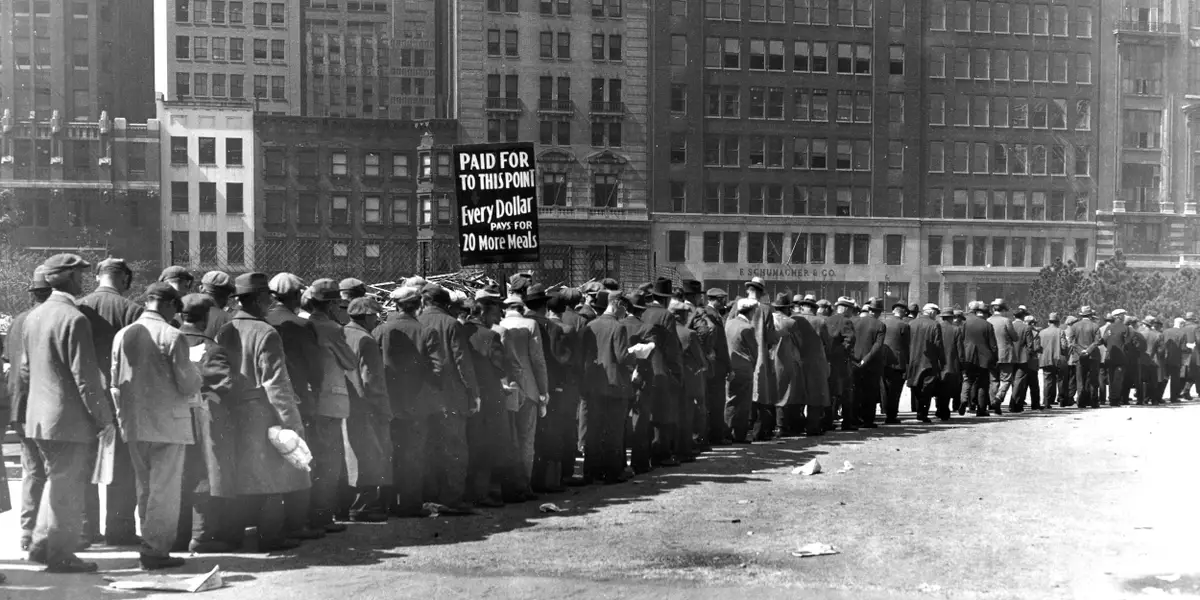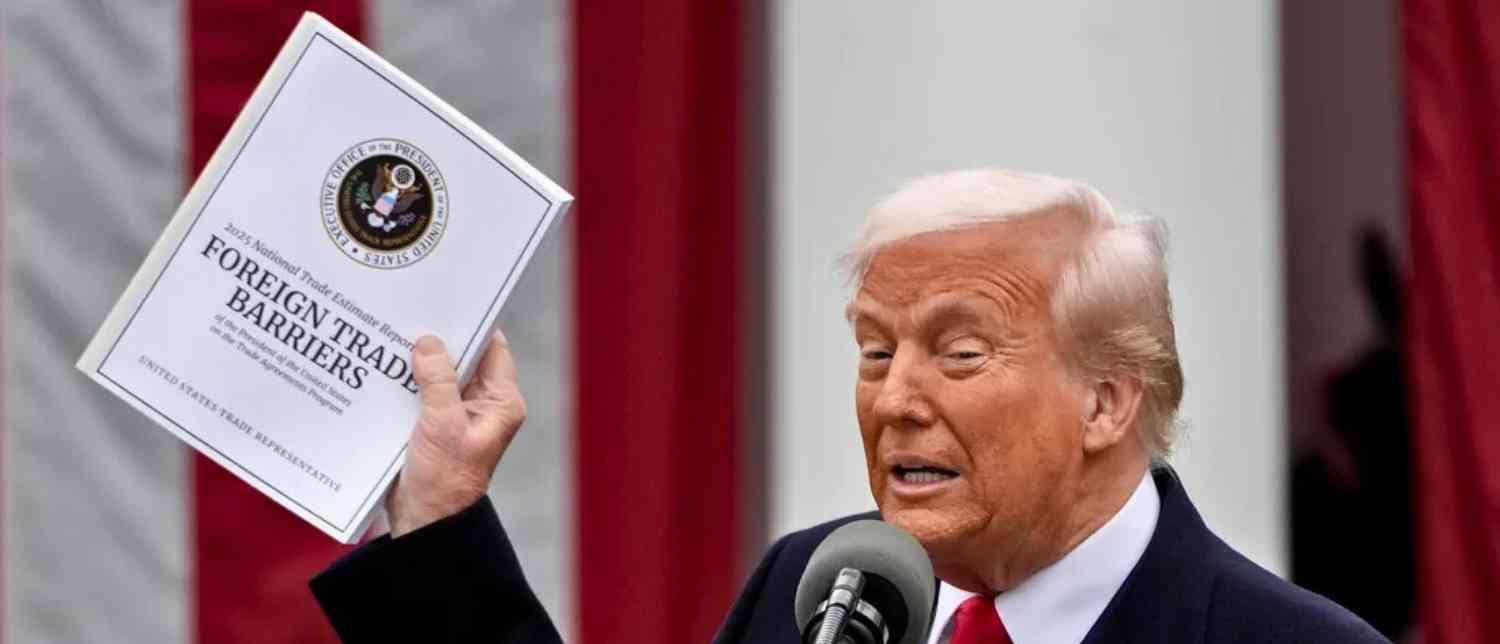US President Donald Trump has warned that if a court rules against his tariff policies, the United States could face an economic disaster comparable to the Great Depression of 1929. He expressed this concern in a post on his social media platform, Truth Social, stating that overturning his tariffs would cause a catastrophic loss of wealth, power, and economic strength for the country.

Trump defends his tariffs by highlighting their "huge positive impact" on the US stock market, where new records have been set almost daily during his administration. He also claims that tariff revenues have brought "hundreds of billions of dollars" into the US Treasury, which he views as a boost to the nation’s economy and government funding. According to Trump, these tariffs have supported domestic manufacturing and reduced reliance on income taxes.
The legal challenge centers on whether Trump exceeded his authority under the International Emergency Economic Powers Act (IEEPA), which allows a president to impose tariffs during national emergencies. The case is currently before the US Court of Appeals for the Federal Circuit, and it could potentially be taken to the Supreme Court if a ruling goes against the tariffs. Legal experts and market strategists have mixed views: some believe striking down tariffs might lead to economic uncertainty, while others argue that reducing tariffs could actually stimulate the economy due to lower costs for consumers and businesses.

Economists note that while the additional tariff revenue is significant, estimated around $70-$80 billion this year, it is small compared to the federal government's overall spending, close to $7 trillion annually. Therefore, some suggest that the feared "Great Depression" outcome is overstated and that the US economy is unlikely to collapse solely because of a court ruling on tariffs.
Trump’s warning refers to a historic economic crisis that began with the stock market crash in 1929 and led to widespread unemployment and hardship. His statement aims to emphasize the gravity of the decision and its potential long-term consequences. However, public and expert opinions vary widely on whether the tariffs have truly benefited the economy or created risks through trade tensions and higher import costs.

In summary, Trump’s warning frames the court ruling on tariffs as a pivotal event with possible severe economic consequences, but this perspective is debated. The outcome of the court case will clarify the legal and economic path forward, with implications for US trade policy, domestic industries, and international relations.
This situation highlights the complex balance between economic protectionism, legal authority, and market reactions, illustrating how trade policy remains a contentious and impactful issue in US politics today.
With inputs from agencies
Image Source: Multiple agencies
© Copyright 2025. All Rights Reserved. Powered by Vygr Media.

























